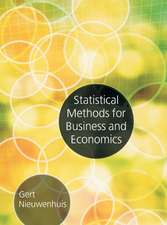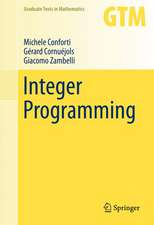The Berlin Creative Industries: An Empirical Analysis of Future Key Industries
Autor Dieter Puchta, Friedrich Schneider, Stefan D. Haigner, Florian Wakolbinger, Stefan Jeneweinen Limba Engleză Paperback – 27 apr 2010
Preț: 378.54 lei
Nou
Puncte Express: 568
Preț estimativ în valută:
72.44€ • 74.84$ • 60.29£
72.44€ • 74.84$ • 60.29£
Carte tipărită la comandă
Livrare economică 26 martie-09 aprilie
Preluare comenzi: 021 569.72.76
Specificații
ISBN-13: 9783834923110
ISBN-10: 3834923117
Pagini: 152
Ilustrații: 149 p.
Dimensiuni: 148 x 210 x 9 mm
Greutate: 0.19 kg
Ediția:2010
Editura: Gabler Verlag
Colecția Gabler Verlag
Locul publicării:Wiesbaden, Germany
ISBN-10: 3834923117
Pagini: 152
Ilustrații: 149 p.
Dimensiuni: 148 x 210 x 9 mm
Greutate: 0.19 kg
Ediția:2010
Editura: Gabler Verlag
Colecția Gabler Verlag
Locul publicării:Wiesbaden, Germany
Public țintă
ResearchCuprins
1.- The Notion of Creative Industries.- On the Theory of Creative Industries.- An International Overview on the Creative Industries.- 2.- From Theory to Empirics.- The Berlin Creative Industries at a Glance.- The Creative Industries in Detail.- Excursus: Differences among Research Results.- 3.- Value Added and Employment.- Conclusions.- 4.- Instruments to Foster the Creative Industries.- Executive Summary.
Notă biografică
Prof. Dr. Dieter Puchta is consultant for strategic business development.
Prof. Dr. Friedrich Schneider is Professor of Economics at Johannes Kepler University of Linz.
Dr. Stefan D. Haigner, Mag. Stefan Jenewein und Dr. Florian Wakolbinger are self-employed in applied economic research and lecturers at the Universities of Innsbruck and Linz.
Prof. Dr. Friedrich Schneider is Professor of Economics at Johannes Kepler University of Linz.
Dr. Stefan D. Haigner, Mag. Stefan Jenewein und Dr. Florian Wakolbinger are self-employed in applied economic research and lecturers at the Universities of Innsbruck and Linz.
Textul de pe ultima copertă
Creative Industries are the key industries of the 21st century and thus an essential element of dynamic metropolitan regions. In Berlin, one in seven enterprises belongs to the Creative Economy. In total, those enterprises yield a turnover of € 7.4 bn and provide more than 80,000 jobs. The authors give a differentiated overview of various approaches towards the Creative Industries and investigate the specific business models and financing needs. The Creative Industries have a heterogeneous structure and a vast fraction of small or micro enterprises. They require creative financing instruments and interdisciplinary approaches in economic policy.













